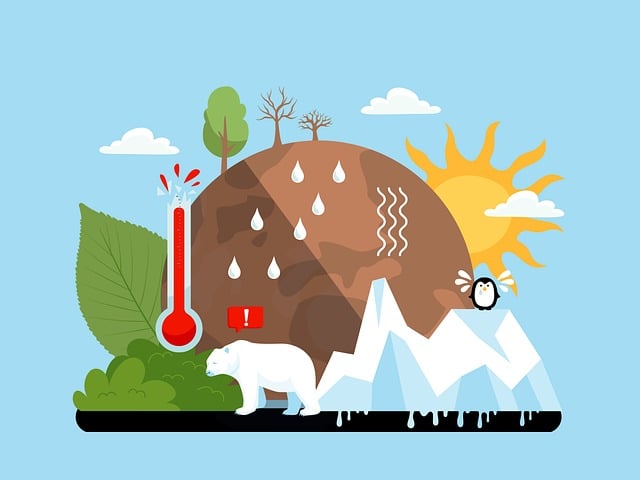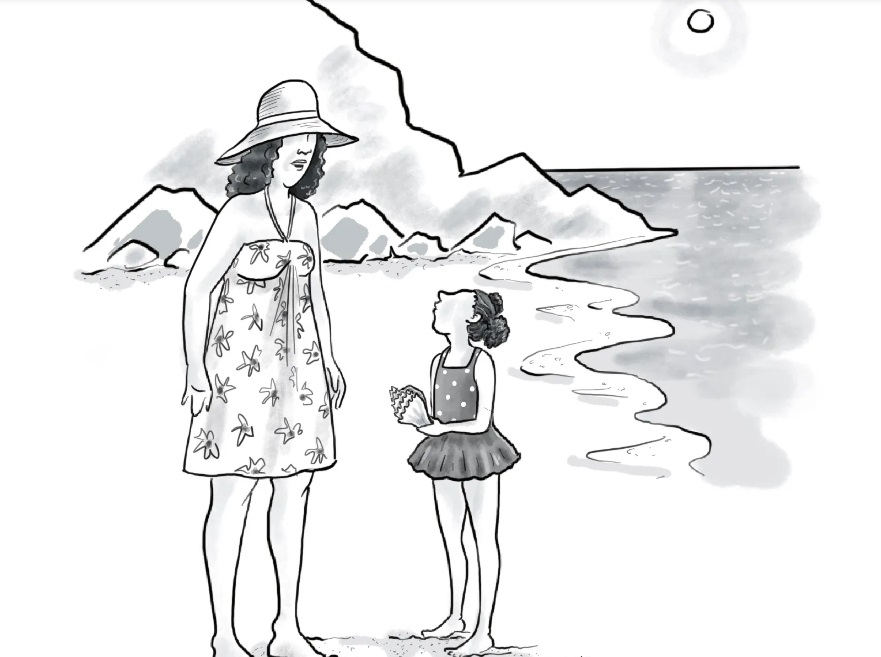While we’re already feeling the devastating effects of human-caused climate change, governments continue to fall short on making and executing emissions pledges that would help thwart further warming. So, what will our world look like in the next 30 to 80 years, if we continue on the current path?
Watch:
and fill in the gaps in the video summary:
1. Scientists predict a …………….. if current path continues for the next 30-80 years.
2. By 2050, Earth has warmed ……………., exceeding the 1.5-degree target.
3. Heatwaves, wildfires, and droughts are more …………………. .
4. The rising temperature and air pollution cause higher rates of …………….. .
5. Rising sea levels cause entire nations to become ……………… .
6. Some affluent cities like New York and Shanghai attempt to ………….. .
7. Bold solutions, innovations, and collective action are needed to mitigate …………………… .
Key: 1. bleak future; 2. 2 degrees; 3. frequent (and severe); 4. premature and underweight birts; 5. uninhabitable; 6. adapt (elevating buildings and roadways); 7. climate change effect
Glossary
- pledge – a serious or formal promise
- to thwart – to prevent somebody from doing or getting what they want
- to unfold – to develop; to become clear, apparent, or known
- bleak – without hope or encouragement; depressing
- power grid -a network of power lines and associated equipment used to transmit and distribute electricity over a geographic area
- to crumble – to breaks into a lot of small pieces
- to cripple – to deprive of capability for service or of strength, efficiency
- to mitigate – make (something bad) less severe, serious, or painful
Practice makes perfect
Word formation: Change the word in CAPITALS to fill in the blanks.
The idea has really been around since the dawn of the modern environmental 1. ………. [MOVE] in the late 1960s and early 1970s. Since then, many countries have adopted the right in their constitutions. And in the last 25 years, you have thousands of decisions from courts around the world interpreting the 2. …………. [CONSTITUTION] right to a healthy environment.
How do we decide what counts as a human right? And why should nature—or a 3. ………. [HEALTH] environment—be included?
Every single human right you might want to exercise depends on having some place where you can live. You can’t really have a life of 4. ………… [DIGNIFIED], freedom and equality without having some minimum environmental standard. (…)
The human right to a healthy environment has been recognized in a number of regional human rights treaties, including in Africa and Latin America. And in fact, the 5. ……….. [MAJOR] of the world’s countries have recognized in their national constitutions a right to a healthy environment. (…)
Of course, recognizing something as a right, even if it’s recognized in a formal way in the law, doesn’t 6. ………. [NECESSARY] mean that it’ll be implemented—many countries’ constitutional right to a healthy environment is 7. ………… [ASPIRATION]. There are really 8. ……….. [POWER] interests in our societies operating against it. There’s a desire around the world for greater economic 9. ……… [GROW], which is driven by extraction and 10. …….. [EXPLOIT] of natural resources. Many of the people who are most dependent on natural resources such as forests, rivers or coastlines are often marginalized already. The forces trying to exploit these resources often roll over the rights of these already marginalized groups. (…)
*On 28 July 2022 the United Nations General Assembly declared that everyone on the planet has a right to a healthy environment
Key: 1. movement ; 2. constitutional; 3. healthy; 4. dignity; 5. majority; 6. necessarily; 7. aspirational; 8. powerful; 9. growth; 10. exploitation
The whole article can be retrieved from: https://www.scientificamerican.com/article/a-healthy-environment-as-a-human-right/
Discuss
- What technologies could help to solve some environmental problems?
- What do you recycle?
- How do you try to save energy?
- How worried are you about global warming?
- Do environmental concerns influence what you buy/ the way you travel?
“If you hold it to your ear, you can hear the earth crying out for mercy.”
Source: https://www.newyorker.com/cartoons/daily-cartoon/thursday-august-4th-seashell-earth-crying
(4609)






